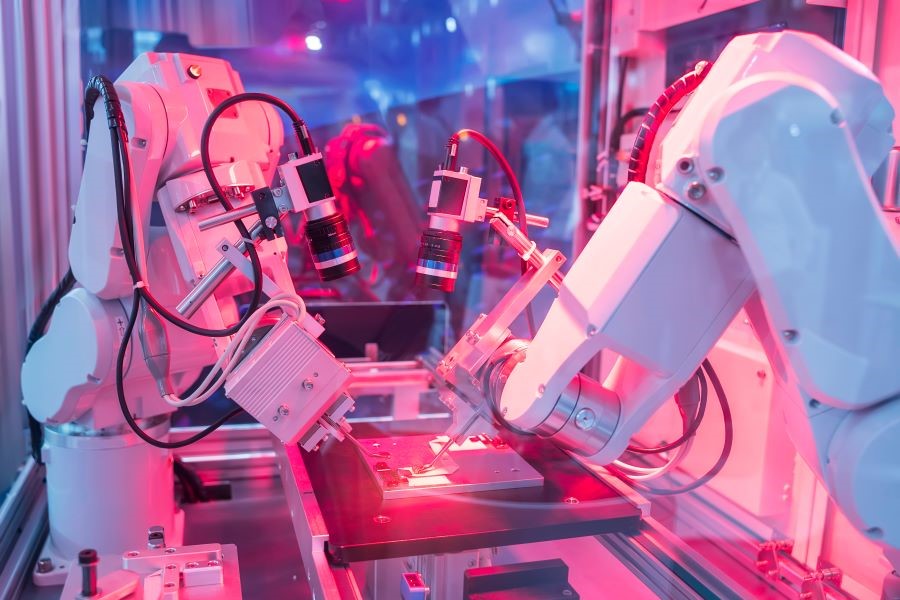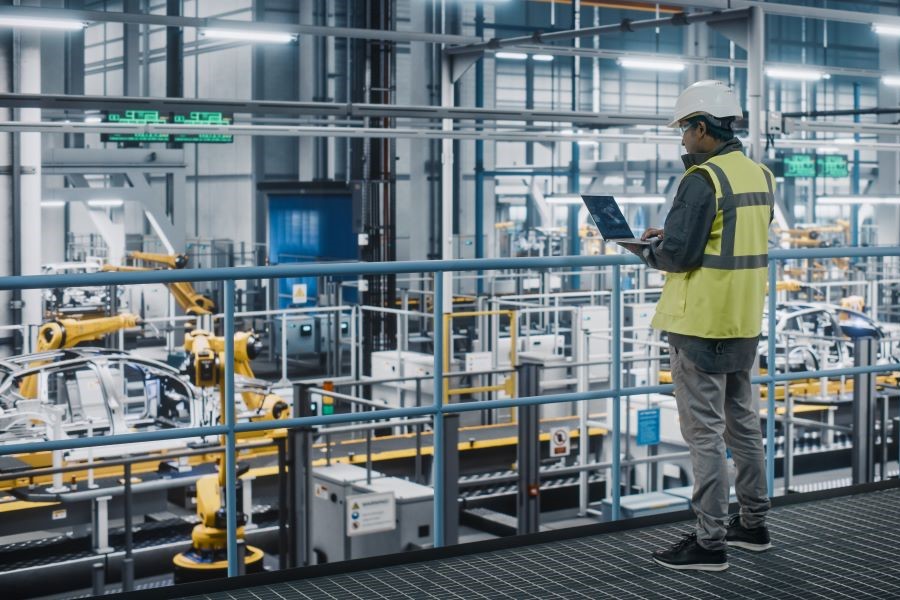Manufacturing is one of the most important pillars of the global economy. It is a vital sector that employs millions of people and accounts for a significant portion of world trade. In recent years, there has been a growing demand for automation for this crucial sector, which is primarily driven by a market that needs prioritization. Here is where the benefits of automation in the manufacturing industry can help businesses become more efficient and productive.
Given the advances in technology and the demand, the use of manufacturing automation industry is on the rise. According to key market insights, the worldwide market for industrial automation is expected to grow at a compound annual growth rate of 9.8% between 2022 and 2029.
In addition, a study by Boston Consulting Group found that 70% of manufacturing companies expect advanced robot systems to be a key driver in production and logistics in the next three years.
In this article, we will discuss the growing use of automation in manufacturing and its benefits for businesses and workers.
What is Manufacturing Automation?
Essentially, the manufacturing definition of automation refers to the use of machines or robots to carry out tasks normally done by humans. This includes tasks such as welding, fabricating, assembling, and packaging. Automation can help businesses become more efficient and productive. For example, a robot can weld together parts faster and more accurately than a human can.
Automation is not limited to large factories. Small businesses can also benefit from automation. And if one can maximize its potential, automation is often more affordable for small businesses than it is for large corporations. Because of the appealing benefits of automation in the manufacturing industry, such as enabling competitiveness, the demand continues to grow.
Here are three of the most apparent factors that contribute to its growth:
First, businesses are realizing that automation can help them become more efficient and productive. For example, robots can help speed up the production process and reduce wastage. They can also help companies achieve cost savings by automating tasks that are expensive or time-consuming to do manually.
Second, automation is becoming increasingly affordable and accessible. With the advent of robotics and artificial intelligence (AI), businesses now have access to technology that can help them automate their operations more easily and cost-effectively than ever before.
Finally, there is a growing shortage of skilled workers in the manufacturing industry. As businesses become more reliant on automation, they will need fewer workers to carry out manual tasks. This will create opportunities for skilled workers in the manufacturing industry, who can then focus on higher-value tasks that cannot be automated.

The Different Types of Manufacturing Automation
There are different types of manufacturing automation, each with its own benefits, that you can choose to implement or integrate. Depending on your manufacturing business, you can introduce:
Fixed automation is the use of machines or robots to carry out tasks for high volume and single-part production. This type of automation is often used in manufacturing plants and factories. Fixed automation is reliable and efficient, and it can help businesses become more productive.
Programmable automation is the use of machines or robots that can be programmed to carry out specific tasks for batch production. This type of automation is often used in laboratories and hospitals. Programmable automation can be customized to meet the needs of individual businesses.
Flexible automation is the use of machines or robots that can be adapted to carry out a variety of tasks for real-time and on-demand production. This type of automation is often used in warehouses and distribution centers. Flexible automation can help businesses save money by reducing the need for additional equipment.
As an example of the three types of manufacturing automation in the real world, a factory may use fixed automation to produce car parts, programmable automation to assemble the car parts into a complete vehicle, and flexible automation to package the vehicle for shipping.
AI Cobot: Automate Your Business with Innovative Solutions
The use of automation in manufacturing can offer many benefits. It can help businesses:
- Become more efficient and productive,
- Reduce costs by reducing the need for labor and increasing production output,
- Reduce errors and improve product quality,
- Create a safer work environment by reducing the risk of injury or accidents in a factory setting, and
- Protect workers from hazardous materials and fumes.
If you’re looking for a way to automate your business and increase efficiency, productivity, and quality, our AI cobots are designed to work harmoniously with humans in a variety of industrial settings. The future is here.
Contact us today to learn more about how we can help you take your business to the next level.

